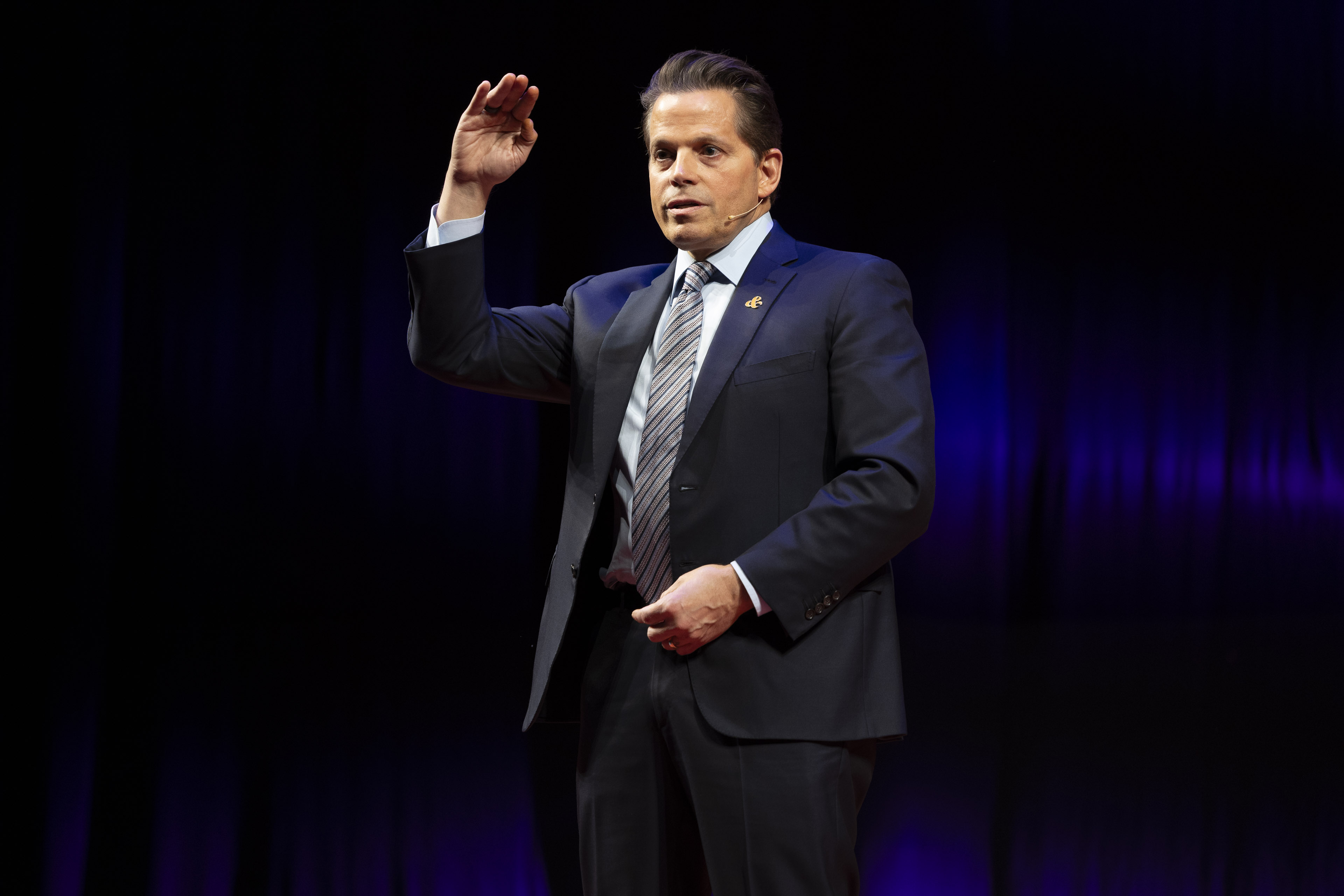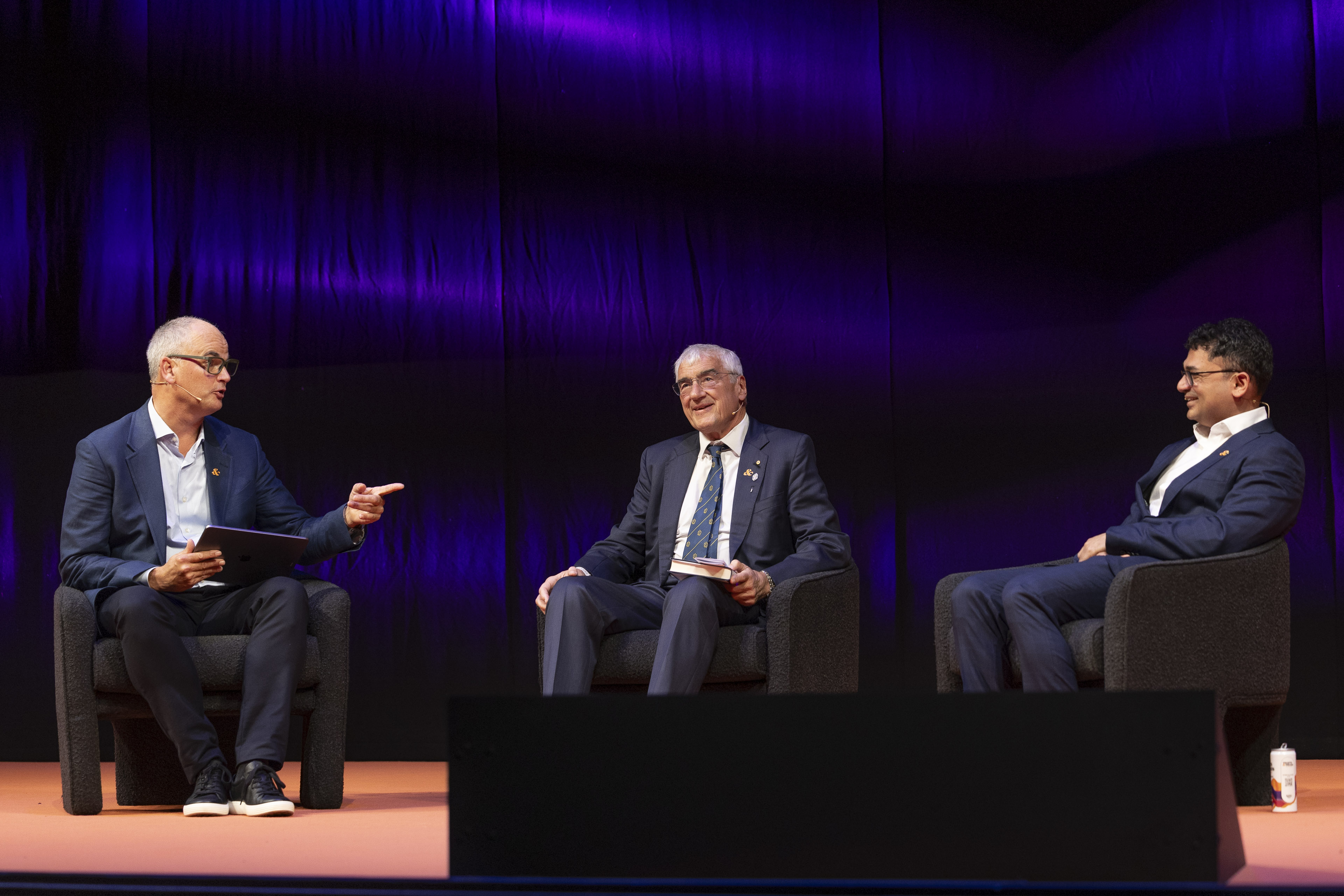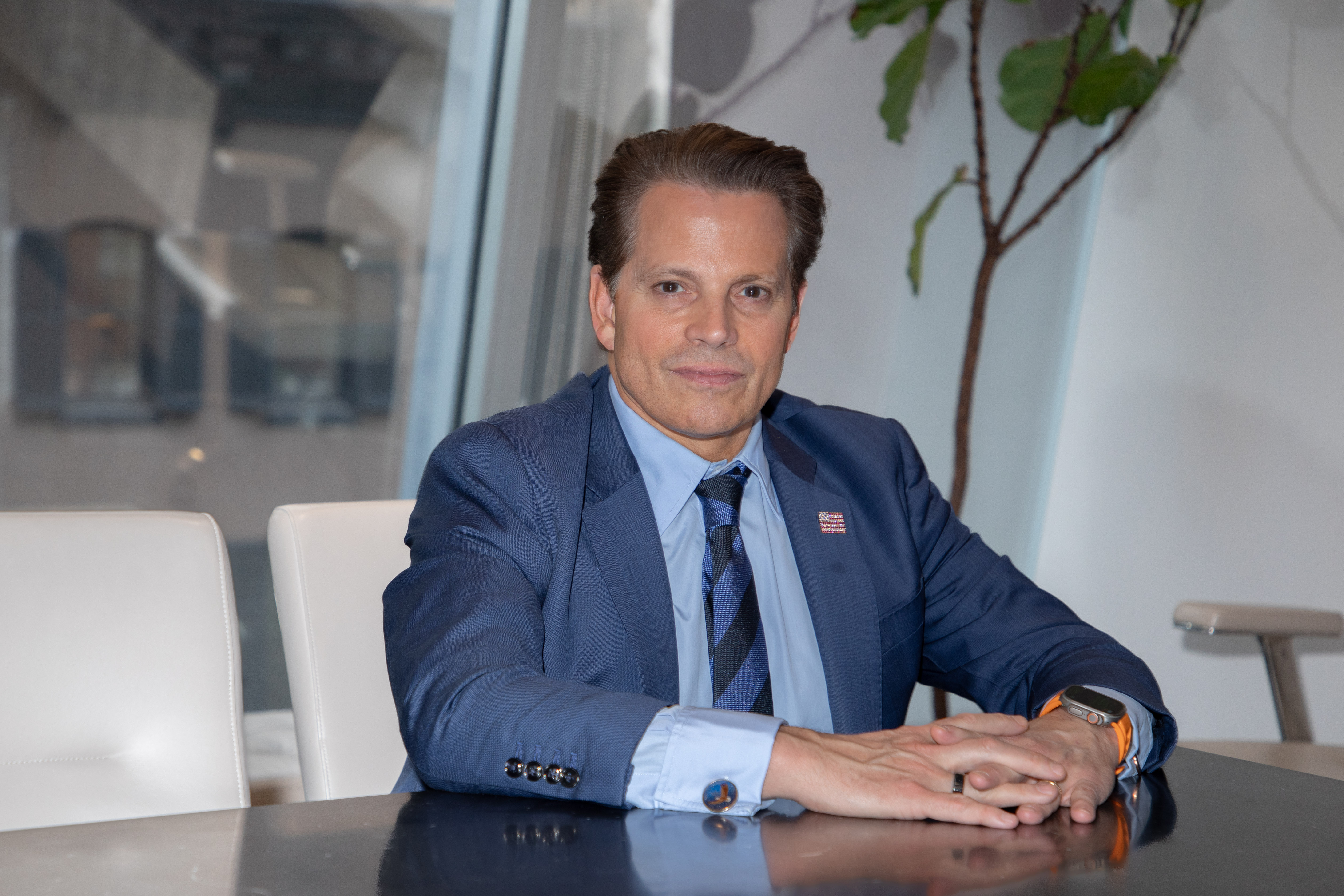
The journey of Lord Michael Hintze from Harbin, China, where he was born, to the House of Lords is a fascinating one.
The English-Australian billionaire served as a captain in the Australian Army, studied at Harvard and worked at Goldman Sachs before starting his own investment firm, which he sold last year.
Now 72, Hintze is back doing what he does best: trading the market.
“We are not running the biggest short we’ve ever had, but we are running a short side to our credit portfolio,” Hintze tells The Australian Financial Review.
In other words, he’s betting that the price of the debt will fall.
“We are also protecting ourselves through insurance on the equity market. Valuations are not totally unreasonable, but you have to be cautious.”
Hintze is arguably one of Australia’s most successful investors, having founded CQS, an investment firm which had $US20 billion ($30.3 billion) under management at its peak.
It was sold to Canadian investment giant Manulife in 2024, but the transaction excluded the hedge fund strategy, which Hintze has run since 2004 and continues to manage in his newly created entity.
“This is going back to the future,” Hintze says, referring to some of his long-serving lieutenants that he has brought with him to help him beat the market.
A well-known philanthropist, he will be making his debut at the Sohn Hearts & Minds charity investment conference that kicks off in Sydney next month.
He’s a UK Conservative Party donor, has been knighted by both the Pope and Queen Elizabeth, given an Order of Australia and in 2022 he was made a baron in the House of Lords by King Charles.
The billionaire has previously told the Financial Review that he developed his philanthropic bent while he served in the Australian army. It’s based on three principles: respect for institutions, protect the most fragile in society and foster aspiration.
His visit to Sydney next month gives Hintze the chance to visit some of his rural properties including one in Deltroit, near Gundagai in NSW, which is also the name of his new firm.
Deltroit Asset Management has $US1.5 billion under management including a “big chunk” of his own capital.
While Hintze trades anything from stocks and bonds to commodities, his forte is the credit markets, which he says are richer with trading opportunities.
The big discussion point is whether credit spreads – that is, the trading margin of corporate debt above the risk-free rate – have become too tight. That’s because on some measures, the return for lending money is as low as it’s been since the 2008 global financial crisis.
Hintze says it’s an important question, but not an easy one to answer.
“If we are in a world where there is an enormous amount of liquidity because every man and dog is running a deficit, it’s easier to pay off debt. The probability of default is going down.”
But he cautions, “the potential loss goes up,” when the defaults climb. It’s for this reason he’s taking short credit bets and buying insurance against corporate defaults.
“There is a huge appetite for credit. Frankly given the risks we have out there, I feel [credit spreads] are tighter than I would like.”
But what about the sharemarket? Is it overheated?
Well, it depends, according to Hintze. The trajectory and valuation of the S&P 500 Index is in the hands of a few companies such as dominant chipmaker Nvidia, which he says is actually cheap relative to its expected growth rate.
“This is a $US4.5 trillion company [compared] with a global GDP of $US110 trillion. At this point the growth is fine, but how much can it keep growing?”
Hintze says you really “have to have your wits about you” when trading fast-growing stocks on high valuations.
“You have to understand the G [growth] but you also have to understand the E [earnings] and you have to understand sentiment.”
“These things can change on a dime. What’s the difference between a PE [price-earnings ratio] of 38 times and a PE of 33? I don’t know, but it [equates to] a 10 per cent stock price move.”
There is one sector of the sharemarket, however, where Hintze does see value: electricity generators, which after years of being dismissed as low growth utilities are benefiting from increased electrification and the power demands of artificial intelligence.
He is torn about AI. While it’s driving productivity, innovation and scientific advancement, he also says that it’s creating “real societal dangers”.
“It’s powerful. We will probably need less analysts. But it’s unbundling the training process in our society and our ability to think.”
One other trend that most active fund managers have derided as dangerous is the increasing flow of money into low-cost passive funds. Today about half the sharemarket comprises price-agnostic rules-based capital that tracks a benchmark.
The passive money is also flooding into the credit markets via exchange-traded funds, making it far easier to trade corporate debt. Hintze says he’s had to adapt his strategy in a world where passive flows dominate.
“The fundamentals matter less until they matter a lot. It’s the reason why the short guys have walked away from the market.”
This article was originally posted by The Australian Financial Review here.
Licensed by Copyright Agency. You must not copy this work without permission.


“The Mooch”, as he’s affectionately known, is a man in high demand. He’s flown into Sydney to headline the Sohn Hearts & Minds conference at the Opera House, an investment community jamboree that raises money for charity. He landed in London the night before, and will leave Sydney the next day for the brutal 24-hour return to New York.


Australian investors should be more worried about China than sweating on Federal Reserve independence and other market obsessions to do with Donald Trump, says billionaire conservative Baron Michael Hintze.


Beyond Wall Street, The Mooch is better known for his cutting takes on US politics in the popular podcast The Rest is Politics: US, which he hosts with BBC’s long-term North American correspondent Katty Kay.